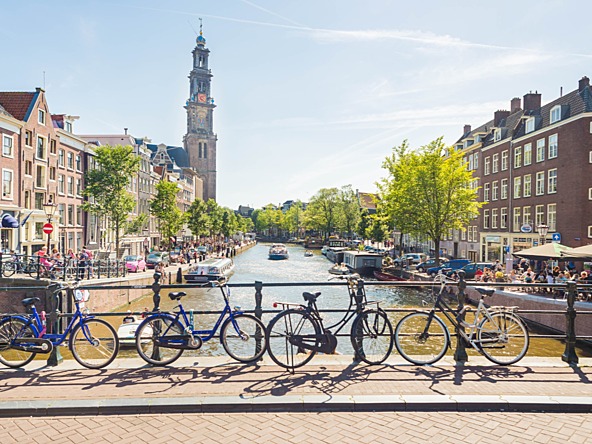How research informed Booking.com’s sustainable travel badge

Speaking at the MRS Sustainability Summit virtual conference, Eline Metske, market research and insights specialist at Booking.com, said: “We are committed to making it easier for travellers to make it easier to book sustainable trips, and market research has a huge role to play.”
An annual survey run by Booking.com to understand more about travellers’ knowledge, attitudes and behaviours towards sustainability in 32 countries found that there is a lack of in-depth knowledge impacting consumers’ ability to be more sustainable when travelling, with 31% agreeing with the statement: ‘I don’t know how to make my travel more sustainable’.
Additionally, a third ( 33%) of respondents agreed that travel companies offering tips on how to be more sustainable would encourage them to be more sustainable in their travel choices.
The company defined sustainable travel as that which aims to minimise its current and future impact on the environment, local cultures and economies, but when asked for their perceptions of the term, the majority of survey participants associated sustainable travel with the environment and nature.
Quantitatively this is also the case – ‘protecting the natural environment’ and ‘reducing waste at the travel destination’ emerged as the top perceptions of what it means to travel sustainably. Reducing overcrowding at destinations was less important for people thinking about how they define sustainable travel, despite being a major challenge, particularly in popular city destinations such as Amsterdam and Barcelona.
Despite a lack of knowledge on how to travel sustainably or what it means, the research found very favourable attitudes towards sustainable travel in general, with 81% of travellers claiming it is a topic of personal importance to them. Additionally, two in three agreed that people need to act now and sustain the planet for future generations.
“The research also found a desire for experiences that are authentic to local culture when travelling and sustainable travel provides the perfect opportunity for that,” said Metske.
As other consumer research on sustainability has found, the Booking.com survey indicated an intention-behaviour gap – while travellers had the best intentions when it came to sustainable travel, they struggled to do this, both while planning trips and while actually at a destination. For example, 46% of respondents reported finding it harder to make sustainable choices while on holiday than when they are at home and 42% reported that they struggled to find appealing alternative destinations that are less crowded.
Barriers to sustainable travel, according to the research, were a perceived lack of sustainable options, and cost - 38% of respondents found existing options to be too expensive.
Additionally, less than a quarter of consumers claimed that they act with sustainability in mind when they travel, and moreover they think other people do so even less. “This becomes important when you look at social norms theory,” said Metske. “I don’t think my friends and family are sustainable when they travel then I don’t feel social pressure to improve my own behaviours. If everyone thinks that, no-one feeks the pressure to improve it.”
Also, green credentials for accommodation emerged among the least important pieces of information consumers consider when searching for accommodation to book. “It’s more of a nice to have priority for consumers – it’s our mission to make it as easy as poss for people to book a sust trip,” said Metske.
Booking.com developed a sustainable travel badge to address some of the issues raised by the research. The programme recognises sustainable initiatives implemented by property owners and is available to any property that meets the minimum criteria to be considered.
The label now appears both in the first preview shown to users of Booking.com when viewing accommodation search results, and within the filtering options, for those who only want to access sustainable properties.
People using the site can also access a list of information about steps properties are taking and how exactly they are considered sustainable, beyond just environmental impact but also steps they are taking in their local community, for example.
In taking this step to badge sustainable accommodation, Booking.com hopes to address the “findability” problem raised by the research. Metske said: “We hope that if we showcase sustainable options to people, they can think about it more and hopefully they won't feel that there aren’t any options out there. We are hoping that people feel more able to travel sustainably and hopefully we can reduce the intention behaviour gap.
Booking.com also plans to extend the badge to other travel verticals beyond accommodation in future.

We hope you enjoyed this article.
Research Live is published by MRS.
The Market Research Society (MRS) exists to promote and protect the research sector, showcasing how research delivers impact for businesses and government.
Members of MRS enjoy many benefits including tailoured policy guidance, discounts on training and conferences, and access to member-only content.
For example, there's an archive of winning case studies from over a decade of MRS Awards.
Find out more about the benefits of joining MRS here.














0 Comments